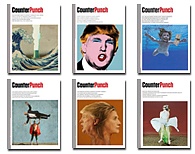
From Left to Right: Ann Wright, LisaGay Hamilton, Norsham Binti Abubakra, Dr. Fauziah Hasan
Sunday night, September 18, 2016. As my “industry” colleagues attend Emmy parties and dress for the red carpet, I stand on the chilly docks of Ajaccio, Corsica, in the wee hours of the morning awaiting the arrival of a small sailboat called the Zaytouna-Oliva. The boat arrives just after 2AM, and the passengers and crew, all women, disembark. The trip from Barcelona was rough. Everyone had gotten sick and it showed on their faces. One woman had become so ill she had to be taken by ambulance to the local hospital. The boat is battered and reeks of vomit, but it does not smell of despair. The women walk quietly and defiantly off the gangplank and toward the pier, where they receive a hero’s welcome. In twenty-four hours, I will join the women on the third leg of the trip to Messina, Sicily, and from there the Zaytouna-Oliva will proceed to its final destination: Gaza.
What possessed me to travel 6,000 miles from L.A. and my family in order to brave the Mediterranean Sea in what is now beginning to look like the smallest vessel on the docks? Why join yet another effort to break the Israeli-Egyptian blockade of Gaza?
First, I am here for the women—the extraordinary women of Gaza as well as the amazing women I’m proud to call my shipmates. I’m here because I’m concerned about the effects of war and blockade on the women, as schools, hospitals, and homes have been periodically destroyed and sources of power and water compromised. I’m here because some 1.8 million Gazans are trapped in what is often described as a giant open-air prison. I’m here for the 299 women and 551 children who were killed in the 2014 assault, and for the over 40,000 pregnant women deprived of basic reproductive health services as a consequence of the blockade and the devastation caused by war. I’m here because the siege on Gaza, waged by both Egypt and Israel, violates the Geneva Conventions prohibition on collective punishment. I’m here because my president just increased U.S. military aid to Israel from $3.1 billion to $3.8 billion per year over the next ten years, with no limits and no mention of the situation in Gaza. I’m here because, despite some easing of the restrictions, the blockade is responsible for high unemployment, food insecurity, an infrastructure badly in need of repair, and an ongoing medical crisis. We are not here to bring “aid” to the people of Gaza, but to contribute to an international effort to break the siege. I take to heart the words of another formidable woman, the Egyptian novelist Adhaf Soueif: “The world treated Gaza as a humanitarian case, as if what the Palestinians needed was aid. What Gaza needs is freedom.”
I’m also here to stand with so many extraordinary women—women like Canadian social worker and activist Wendy Goldsmith, Israeli political activist Yehudit Barbara Llany, Tunisian legislator Latifa Habachi who helped draft their Constitution of 2014, Malaysian gynecologist Dr. Fauziah Hasan, our intrepid leader and flotilla veteran, retired U.S. Army colonel Ann Wright, and our “Skipper” Madeline Habib of Australia. I am proud to be the only Black woman participating on this journey, and while I disembark in Messina, for the first time in my life I feel like I am a part of something much bigger than myself. Watching the boat dock, I thought: how extraordinary that this one small boat holding thirteen women poses such a security threat that Israeli Defense Forces will intercept and board the vessel, arrest the women, and destroy the boat.
One woman who will join our crew for the final stretch to Gaza is my dear friend, playwright Naomi Wallace. Fierce as well as fearless, Naomi reminds me that we are also here in defense of free artistic expression. Tellingly, when I confided to some of my closest friends that I was about to take this trip, they were less concerned about my physical safety than the impact it might have on my ability to work. Criticizing Israel or expressing concern for Palestinians is apparently still taboo in film, television, and even theater. Recently the Public Theater in New York was forced to cancel a production of “The Siege,” a play about five International Solidarity Movement activists forced to take refuge in a church in Bethlehem during the Second Intifada in 2002. Naomi is no stranger to this kind of censorship. Her play “Twenty-One Positions,” co-authored with Abdelfattah Abusrour and Lisa Schlesinger, was commissioned by the Guthrie Theater and then rejected for being too sympathetic to the Palestinians. And when Tony-award winning actress Tonya Pinkins attempted to organize a benefit concert for the Movement for Black Lives, the venue owner abruptly canceled the event citing the movement’s criticisms of Israel. I hope our trip might contribute to breaking the tacit American blockade of Palestinian art and artists.
I won’t lie; I’m scared to death. I’m scared of getting sick, of capsizing, of being lost at sea. I’m afraid for myself and especially for the courageous women who will try to break through the blockade. But I’m more afraid of what might happen if we all stayed home, silent and complacent and posing for the paparazzi. Breaking the siege is not the same as freedom for Gaza, but it is a start. And we women will prevail. As my South African sisters often said in their freedom struggle, “Now you have touched the women, you have struck a rock.”

LisaGay Hamilton in Naomi Wallace’s play, “The Liquid Plain”.









